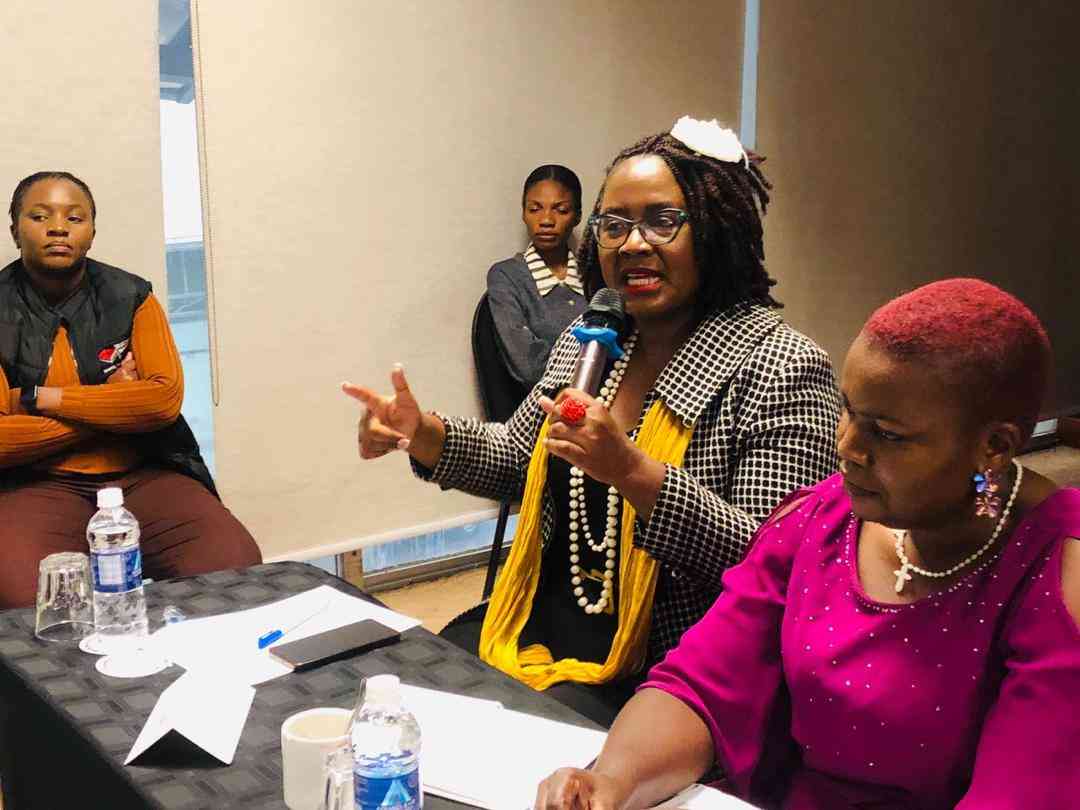
Women politicians have bemoaned rising violence against women in politics which discourages their participation in key decision-making processes..
This comes at a time when female candidates are increasingly occupying higher political positions in government and in political parties.
Linda Masarira, who failed to register as female presidential candidate for the 2023 polls, said women face violence simply for daring to challenge for spaces traditionally occupied by men.
“Violence against women in politics is a deeply concerning issue that has hindered the participation of women in decision-making spaces,” said Masarira.
“Women who step into the political arena often face targeted harassment, verbal abuse, and even physical violence, simply for daring to occupy spaces traditionally dominated by men. This violence not only discourages women from participating but also perpetuates a culture of fear and exclusion.
Only three women registered to compete for the top office in Zimbabwe’s elections in 2018: Joice Mujuru. Thokozani Khupe and Violet Mariyacha. In 2023, only Elisabeth Valerio was brave enough to enter the poll ring.
Masarira said violence against women was designed to undermine confidence, discredit them and their capabilities, and silence their voices.
“It creates a hostile environment that discourages potential female leaders from stepping forward, leading to a severe gender imbalance in political representation.”
- Zec must reduce candidate nomination fees
- Letters: Women representation faces hurdles
- Letters: Democratise natural resource governance
- MPs exchange notes on fighting child marriages
Keep Reading
Women Academy for Leadership and Political Excellence (Walpe) recently hosted a workshop focusing on election reflections and ending violence against women in politics and promoting well-being in communities which revealed a disturbing pattern of systemic issues that hinder women's participation.
Walpe’s Media and publications officer Sizalokuhle Ncube said the psychological toll on female candidates was among the most pressing concerns.
She said violence against women in politics was a persistent issue around the world. In Zimbabwe, this violence occurs in different forms, including physical, sexual, and psychological injury
“According to research, women politicians have faced physical attacks, intimidation, and harassment during elections and campaigns,” Ncube said.
“Social media platforms have become breeding grounds for online violence against women politicians, with cases of cyberbullying, harassment, and defamation reported. Women politicians have been subjected to emotional abuse, belittling, and humiliation, affecting their mental well-being and ability to participate in politics.”
She added that survivors of previous trauma find themselves re-traumatized during political campaigns, facing accusations and financial ruin.
To address this, the workshop emphasized the need for counseling and emotional intelligence training to help women cope with past experiences and build resilience.
“Throughout the past decade, politically motivated violence against women has been a pervasive issue, worsening gender inequalities in the political sphere,” Ncube said.
“Women in Zimbabwean politics face widespread harassment, including verbal abuse, sexual extortion, physical assaults, cyberbullying, and outright discrimination, especially around election cycles.
“They face derogatory comments about their morality, social roles, and personal choices, physical assaults occur during campaigns, discouraging active political engagement,”
Lillian Muhwandavaka the secretary general for Zimbabwe National Students Union (Zinasu) says as a female candidate she often faces harassment, especially on the internet.
“If you are violated and bullied women usually back out of the race and as a result l have lost several women within the student activism space because they are now scared,” Muhwandavaka said.
The women leaders want policy reforms to enable women’s participation in politics.










